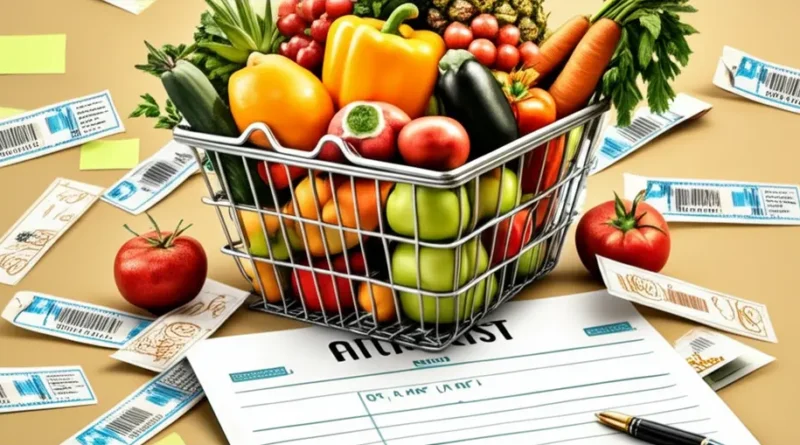The Best Ways to Save Money on Groceries
With prices rising and budgets tightening, finding ways to save on groceries has become more important than ever. Whether you’re a college student living on a tight budget, a single parent trying to make ends meet, or a family just looking to stretch every dollar, there are strategies you can employ to save money on your grocery bills without sacrificing quality.
Here, we discuss some of the best actionable strategies that you can start implementing today to make a significant impact on your grocery expenses.
1. Plan Your Meals
Before you head to the grocery store, spend some time planning your meals for the week. By knowing exactly what you need, you can avoid impulse purchases that typically lead to wasted food and money. Look through your pantry and refrigerator to see what you already have, and plan meals that incorporate those items.
Additionally, creating a shopping list based on your meal plan can help you stay focused and avoid buying unnecessary items. Stick to the list while shopping to maintain your budget.
2. Use Coupons and Discounts
Coupons can help you save a significant amount on your grocery bills if used wisely. Look through your local newspapers, grocery store apps, and online coupon sites for deals on items you plan to buy. Some stores even have loyalty programs that provide exclusive discounts to members.
Combine coupons with store sales for maximum savings. Don’t forget to check for digital coupons that can easily be applied at checkout. However, keep in mind that coupons should only be for items you actually need; buying something just because you have a coupon can negate the savings.
3. Buy in Bulk
If you have storage space and are confident that you will use the items before they expire, buying in bulk can lead to considerable savings. Items such as grains, canned goods, and freezer-friendly items can often be found at lower prices when purchased in larger quantities.
Just be careful not to get carried away — ensure that you actually have a use for everything you’re buying in bulk to avoid wastage. Comparison-shop to see if bulk buys are genuinely worth it compared to smaller packages.
4. Seasonal and Local Produce
Purchasing fruits and vegetables that are in season often comes at a lower price due to higher availability. Farmers’ markets or local produce shops usually offer fresh local produce at reasonable prices as well, often less than grocery stores.
Moreover, buying seasonal can mean tastier, fresher options for your meals. If you find a great deal on produce, do not hesitate to buy extra to freeze for later use.
5. Go Generic
While brand loyalty is common, generic or store-brand products are usually made with the same ingredients as name-brand counterparts but are sold at a fraction of the price. Don’t be afraid to try these alternatives, especially for staples like pasta, rice, and canned goods. You might find that you enjoy them just as much.
6. Limit Convenience Foods
Pre-packaged meals and snacks may be time-savers, but they cost significantly more than if you prepare them from scratch. Invest a little bit of time in meal prepping or cooking large batches of meals that can be stored in the refrigerator or freezer. You’ll save money and often eat healthier.
Homemade snacks, such as granola bars and fruit slices, are also more affordable and healthier than most pre-packaged options.
7. Avoid Shopping When Hungry
Grocery shopping on an empty stomach often leads to impulse buys that can significantly increase your grocery bill. Make it a habit to eat a meal or snack before heading out to shop, ensuring you stay focused on your list and are less likely to succumb to hunger-induced temptations.
8. Use Cash or a Budgeting App
Deciding on a fixed amount to spend and paying in cash can help you stick to your grocery budget. Alternatively, use budgeting apps to track your spending patterns and identify areas where you can cut back. By being conscious of your spending, you can create a more effective plan for savings.
Incorporating these strategies into your grocery shopping routine could result in significant savings over time. It may require some adjustments and extra effort at first, but the financial benefits will be well worth it.




